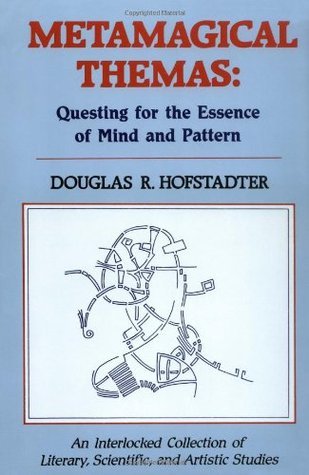
The Emperor's New Mind
Book Description
What if the vast universe of human consciousness holds secrets that machines can never unlock? In "The Emperor's New Mind," Roger Penrose takes readers on an exhilarating journey through the mysteries of intelligence, mathematics, and the essence of being. As he unravels the complex relationship between mind and machine, he challenges the very foundations of artificial intelligence, sparking a debate that echoes through science and philosophy. With every page, the stakes rise, revealing the profound implications for our understanding of reality itself. Are we more than mere algorithms, or is our consciousness just a grand illusion?
Quick Book Summary
"The Emperor’s New Mind" by Roger Penrose challenges the notion that artificial intelligence, as it is currently conceived, can fully replicate or emulate human consciousness. Penrose, a renowned mathematician and physicist, explores the deep interplay among mathematics, physics, and philosophy to question whether the mind is merely a computational system. He draws from Gödel’s incompleteness theorems, quantum mechanics, and thermodynamics to suggest that aspects of human thinking cannot be captured by algorithms alone. Throughout, Penrose proposes that consciousness arises from physical processes yet unknown and perhaps uncomputable, urging the scientific community to seek new physics, possibly rooted in quantum mechanics, to explain the mind. The book serves not only as a critique of strong AI but also as a profound investigation into the enigmatic nature of consciousness itself.
Summary of Key Ideas
Table of Contents
Limits of Formal Systems and Algorithms
Penrose begins his exploration by delving into the fundamental limits of formal systems, inspired by Gödel’s incompleteness theorems. He argues that mathematical truth goes beyond formal rules and algorithms, suggesting the human mind possesses an intuitive component that allows it to see truths unavailable to machines confined by computational procedures. This sets the stage for his broader argument about the unique character of human consciousness.
Consciousness and Physical Law
He then examines the standard model of computation, as defined by Alan Turing, and its implications for artificial intelligence. Penrose asserts that while computers are powerful and follow deterministic rules, there are inherent mathematical problems that no algorithm can decide. He contends that if the mind were algorithmic, it would be subject to these limitations, yet humans routinely solve problems outside computational reach.
Quantum Mechanics and the Mind
The discussion progresses to the intersection of physics and consciousness. Penrose surveys how classical and quantum physics are usually taken as the bedrock of physical law, but he suggests these may be insufficient to explain consciousness. Specifically, he speculates that as-yet-undiscovered processes within quantum gravity might be at play, making consciousness a fundamentally physical, yet non-algorithmic, phenomenon.
The Nature of Computation
Penrose critically analyzes the claims of strong artificial intelligence—the belief that machines can, in principle, be truly conscious if programmed correctly. He scrutinizes the arguments for and against machine consciousness, emphasizing the qualitative gap between current computational models and the vivid, unified subjective experience characteristic of minds. He maintains that key mental features might rely on non-computable physics.
Challenging Strong Artificial Intelligence
Ultimately, Penrose advocates for a radical interdisciplinary approach. He encourages collaboration across mathematics, computer science, physics, and neuroscience to unravel the mysteries of mind. Suggesting that new physics lies at the heart of consciousness, he calls for open-minded inquiry, positing that understanding consciousness could revolutionize both science and philosophy in unforeseen ways.
Download This Summary
Get a free PDF of this summary instantly — no email required.





